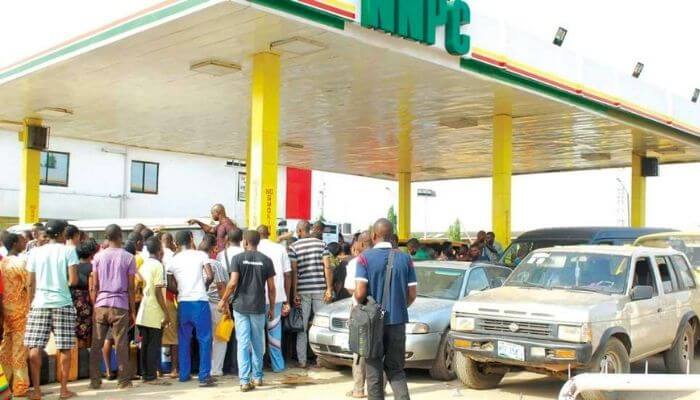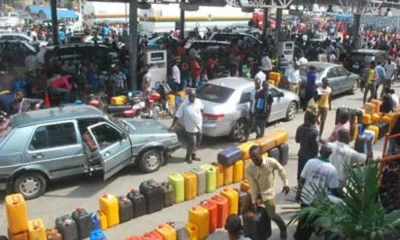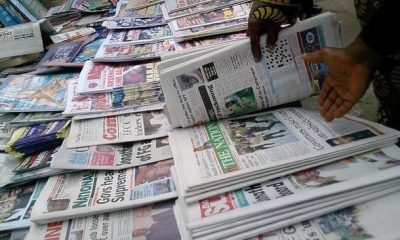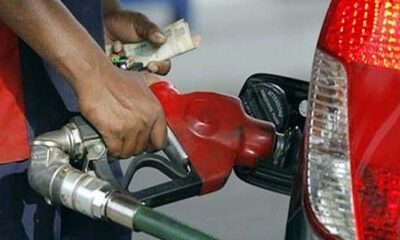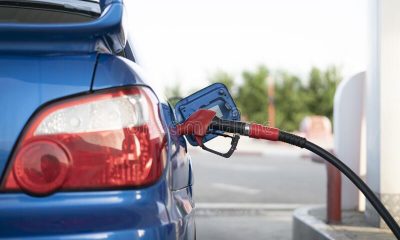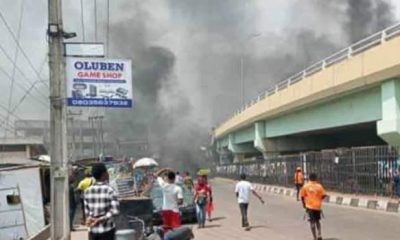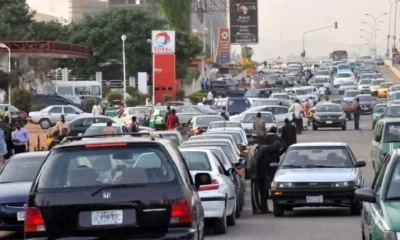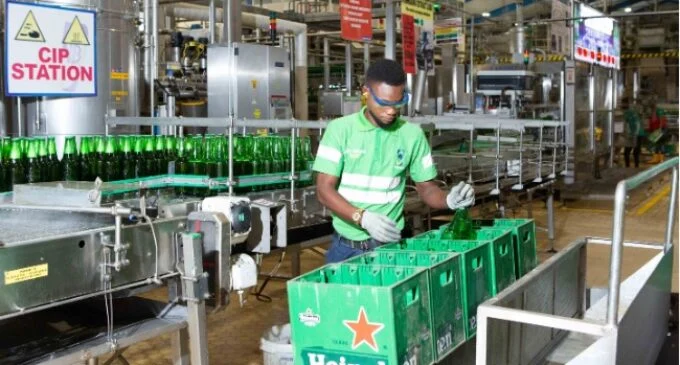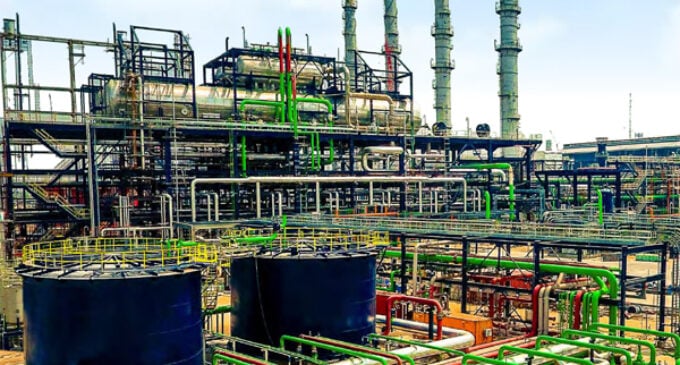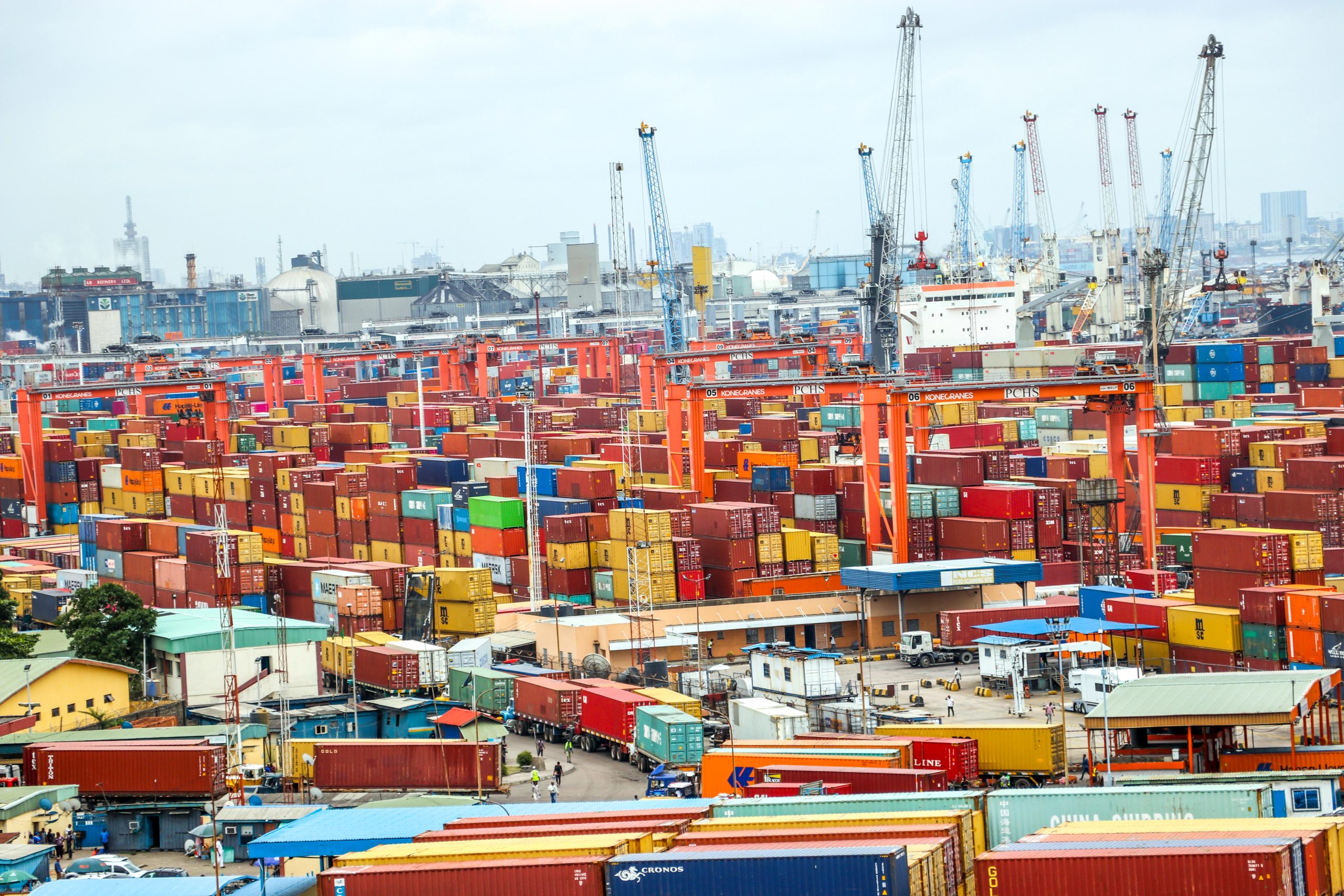Residents of Abuja and neighbouring states are facing tough times to buy Premium Motor, better known in the country as petrol, with the commodity selling for as high as N400/litre by black marketers.
The development came almost one week after the import of millions of dirty PMS from Europe into Nigeria disrupted the fuel supply system of the country, leading to long queues nationwide.
The Nigerian National Petroleum Company Limited has ordered the recall of the contaminated fuel but oil marketers have been battling various challenges, ranging from PMS supply shortage to complaints by consumers who claimed the bad product has damaged their vehicles.
However, findings have shown that black marketers who sell petrol in jerry-cans are now the easily accessible suppliers of PMS in Abuja and neighbouring states.
A significant percentage of filling stations in the capital city do not currently have petrol to dispense.
Oil marketers said that a few other outlets that had products were still trying to return the adulterated petrol supplied to them since last week.
This, they said, had prevented the affected stations from taking in uncontaminated products, as they currently lacked space to store new consignments.
Heavy queues greeted the limited number of filling stations that dispensed petrol on Sunday. Motorists spent several hours under the scorchy sun waiting to be served petrol.
The NNPC filling station on Arab Road in Kubwa, Abuja had hundreds of motorists who formed long queues that blocked the road and caused severe traffic in the area.
Providing an explanation as to why many filling stations were still not selling petrol, the National Public Relations Officer, Independent Petroleum Marketers Association of Nigeria, Chief Ukadike Chinedu, said some retailers who purchased the adulterated products were still struggling to return them.
He explained that the contaminated products were still occupying spaces in the underground tanks of the affected filling stations, adding that this had prevented the outlets from accessing new stocks.
“Where will you discharge your new stock when your underground tanks still have contaminated products that have not been returned? Many of those who bought the contaminated products are still struggling to have them returned to NNPC,” the marketer stated.
“We also want the government to come out with clear cut directives and procedures on how products that are contaminated should be returned,” the IPMAN official had stated.
He added, “Some marketers are still having the contaminated products in their stations and are not selling because of this. The products have not been returned yet due to lack of clear cut directives on how it should be returned.
“Also, you need documents to enable you to move the tankers from your filling station back to the place where the product is to be returned because if the police get you without the necessary accompanying documents, they will say you are involved in bunkering.”

 News3 years ago
News3 years ago
 Entertainment2 years ago
Entertainment2 years ago
 News3 years ago
News3 years ago
 Privacy3 years ago
Privacy3 years ago
 Sports2 years ago
Sports2 years ago
 Entertainment2 years ago
Entertainment2 years ago
 News3 years ago
News3 years ago
 Opinion3 years ago
Opinion3 years ago
